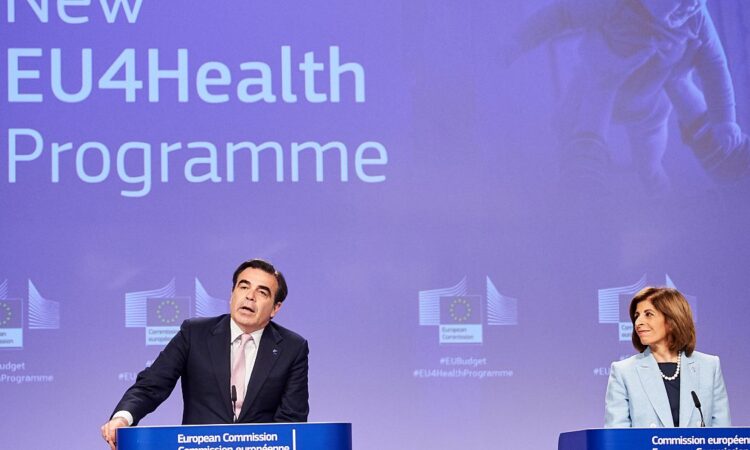
An unprecedented funding line for health in the current EU long-term budget will likely be a one-off, said a senior official mulling long-term financing more sustainable than EU funds alone.
Adopted in the wake of the COVID-19 pandemic, the EU4Health programme was the first time the bloc allocated budget earmarked for health – a landmark given health remains a competence firmly in the hands of member states.
The €5.3bn allocation running from 2021 to 2027 is not likely to be repeated, however, according to the director-general of the Commission’s health service (DG SANTE).
“This budget has no real continuity in the future. So in many respects, I am trying to go for sustainable financing,” Sandra Gallina told a conference in Brussels this week (13 May).
EU4Health was originally conceived to be the financial arm of the European Health Union and reinforce the EU’s crisis preparedness for long-term health challenges.
“We are trying to make choices where sustainability is guaranteed not because I will have a constant source of [public] money but because we have put the right seed in the member states,” she added of the EU executive.
Gallina said that the current allocation of funds had been “a major game changer”, noting that the Commission’s health department “had to live off crumbs” in the past from other programmes such as cohesion policy or funds for peripheral regions.
The health community in Brussels is already experiencing the difficulties of living with fewer EU funds, as some budget cuts have recently affected EU4Health. In February, EU leaders decided to re-deploy €1bn from Europe’s health programme to partially finance the aid package for Ukraine.
“A choice that was very political, as we found ourselves with less than half of the money[left in the programme],” Gallina said.
She said that the situation was not helped by difficulties in short-term evaluation of the impact of health funding, adding that EU4Health’s results will take much longer than the end of this mandate to yield results.






